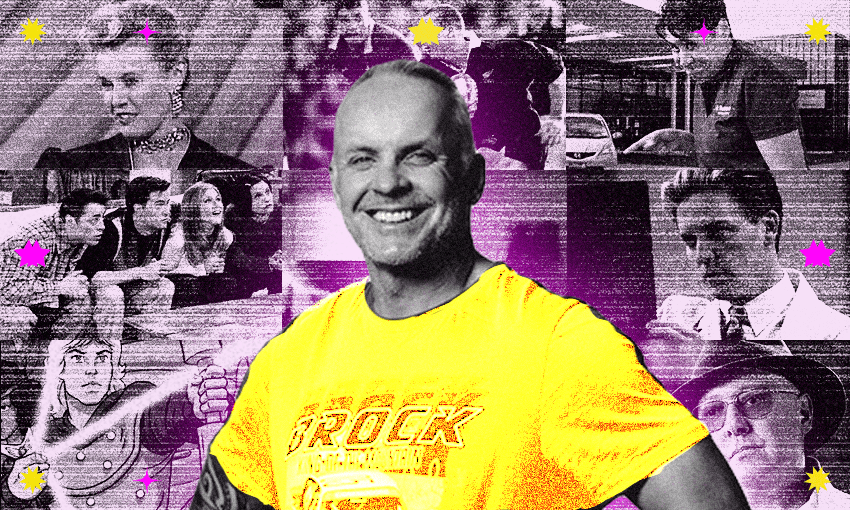They say it takes a village to raise a child, but it takes many more to produce a Socceroo.
That’s been the experience for 18-year-old Garang Kuol, who is in his very first camp with Australia as the youngest person to be called up to the Socceroos since Harry Kewell.
It wasn’t a straight line. Pathways in Australian football are messy, and often require huge community support — especially for working class new migrant families.
“[My parents] do anything and everything for us,” Garang told the ABC.
“They used to work all day every day, just to make sure there’s food on our plates … [and] drive two hours to Melbourne every second week.”
He wants to repay them by following in the footsteps of players like Awer Mabil and Thomas Deng — his inspiration.
“They’re like my brothers … they sort of welcomed me and sort of took me under their wing and showed me around,” he said.
Loading Instagram content
In recent years, there’s been a growing number of exciting African Australian footballers coming through. Garang believes it gives young African Australians confidence and a path to follow.
“It’s good to see fellow African footballers make their way,” he said.
“Because it gives us hope that we can do something with our lives … especially coming from families that came from struggle.”
In Melbourne’s south-east there’s grassroots efforts to organise that through community sport.
Young African Australian footballers coming together
Olivier Permal and Meron Negasi started ‘Sunday 3pm’ during the pandemic as a space to connect with friends and build a place where young African Australian footballers could play unencumbered.
“The mix of other cultures coming together and even through that, we figured that each cultural group had their own style of playing football,” Permal told the ABC.
“Even though Australia is known for not having a specific style of football.”
Coinciding with the opening of the new complex in Casey Fields, Permal saw it as an opportunity.
Loading Instagram content
He saw the impact of social sport in migrant communities in France and the UK, with an explosion of talent emerging. They wanted their own version in Melbourne’s south-east.
“I think the pathway of this culture that we’re kind of building is definitely Alou and Garang [Kuol] are kind of products of that,” he said.
“They’re products of this culture that social-slash-street football is very important, it builds character.”
The games blew up in popularity with people coming from across Melbourne from the western suburbs to the northern suburbs, all to play at Casey Fields.
“We would play against a group of other footballers who played for Melbourne Victory youth,” he said.
There have been more than a dozen Victorian National Premier League (NPL) and A-League men’s players grace the ‘Sunday 3pm’ pitches.
They have ranged from Alou and Garang Kuol, former Melbourne Victory striker Kenny Athiu, to the current South Sudanese national team goalkeeper Majak Mawith.
“[Despite] people along the way, who didn’t believe in them as players as well, they always had their boys,” he said.
“They’ll play local tournaments when they weren’t allowed to … just so they can get that fix of just being able to play with their friends.”
Bypassing barriers
Permal remembers when Alou and Garang were coming down to play, despite living hours away in Shepparton. Alou even slept on his couch while he was trialling for A-League clubs in Melbourne.
“Being able to play with players that have the ability and skill to reach that professional level is definitely a product of the culture that we’ve created amongst ourselves,” Permal said.
“Because compared to a child that has much more financial advantage, and support … [it’s] rewarding to see that one of our own, is able to bypass all these barriers, and be become noticed.”
Garang and Alou’s older brother Kuol who manages them has seen first hand the power of ‘Sunday 3pm’ on young African Australian footballers.
“I feel it’s a privilege that we can all be bound together, play football, enjoy ourselves,” eldest brother Kuol told the ABC.
He’s proud of his brothers achievements, and the environment being fostered in Casey Fields by Permal, although he can’t help but feel a sense of sadness about the talented young African Australian footballers who haven’t made it.
“What my heart actually gets the shame from is that there are individuals that could have had better opportunities … [if] their soccer fees weren’t $2,500 just to be registered with NPL to play at a certain club,” he said.
“I just see the kids that have been deprived, and that could excel much more than that if a system allowed them to.”
Kuol family won’t forget support from the Shepparton community
Antonita Kuol couldn’t have imagined both her sons would become professional footballers, let alone her youngest Garang being called up to represent the Socceroos.
“I feel very proud. Because I never knew that one day he will be called for the Socceroos,” Ms Kuol said.
She credits the support her family received from the local community in Shepparton for the strides her sons Garang and Alou have made in the game.
When they first moved to Shepparton Ms Kuol didn’t have her driver’s licence, so taking her sons to training or to competitions wasn’t easy.
“All the community around is supportive. If I can’t take them [to a game] they will take them, and they sometimes bring them home,” she said.
“You feel like your kids are going to be okay … your kid can be safe around them.”
Ms Kuol recalled when she worked as a seasonal worker at SPC in Shepparton.
She was making good money but the associated costs that came with playing football in Australia started to catch up to her.
“When it came to going to the club that was a bit hard with the fees,” she said.
When an overseas trip happened that saw her sons called up to represent Victoria in tournaments in Japan and Spain, she only had half of the $8,000 needed to get them there.
“One of my friends went and asked the owner and said, ‘look, you know these people who work for you. They have children, they’ve been called to represent country Victoria, and they have a shortage of finance’,” she said.
Suddenly, Ms Kuol had the other $4,000 needed to send her sons on their way to represent regional Victoria.
“That was very amazing. And I really don’t want to forget it. That time was a very, very big time to see somebody can pay thousands of dollars to help you,” she said.
“We are very blessed to be in Shepparton.”
Garang says his future is in his hands
Garang isn’t scared of his meteoric rise, he’s relishing his opportunity in the spotlight.
“I feel happy that I’ve been able to express myself on the field,” he said.
“Also happy that to see what I do can obviously impact where I go in. It’s all in my hands.”
Garang said he is embracing his journey, because though he could have been born somewhere else and had more opportunities, no one is promised an outcome.
“The best way to do this is embrace the route I came through and just move,” he said.
“[Because] when you have a goal, and you’re focused on that goal that makes it easier to just put everything aside and just focus.”



















.jpg)

Discussion about this post